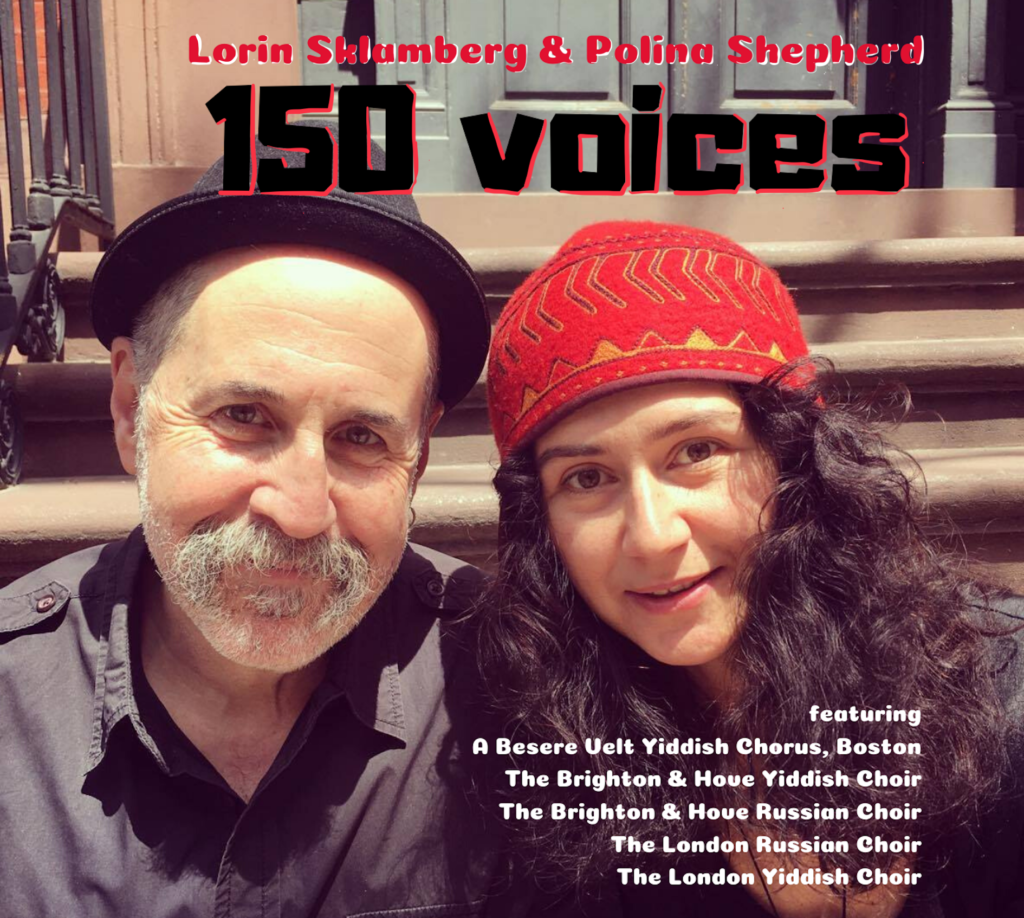Yiddish music sings of a diverse world that goes back to the tenth century, in a language spoken by European Jews, more than ten million people, from Russia in the east to the Netherlands in the West. But by the mid -20th century, this culture, with its great tradition of writers and thinkers, was endangered, severely depleted following the Holocaust, and then the creation of the modern-day state of Israel where the spoken language is modern Hebrew. But Yiddish songs and lyrics still speak of a living culture. Yiddish songs have always been central, throughout our history, in urging us to remember that culture -- a greater awareness of common humanity in terms of frailty, vulnerability to illness and mortality, and of the power of exchanging stories about our leaving our homes, either by choice or force. The melodies of Yiddish songs, some based in ancient modes, and its plain-spoken lyrics, sing directly to our hearts and make possible the continued survival and nurturing of that culture.
Polina Shepherd, née Skovoroda, born in Siberia, is a passionate advocate of singing Yiddish songs together with others. “I feel very strongly about bringing people together through singing, also about Yiddish singing, which is a very fragile culture.” She is an accomplished performer, conductor and arranger of a Yiddish and Russian song repertoire and presently conducts five choirs that sing Russian and Yiddish folk and art songs and newly composed originals, based in the history and culture of Yiddish musical composition and song. Polina has just put out a CD ("150 Voices”) of Russian and Yiddish choirs, with Lorin Sklamberg, lead singer of the Grammy Award-winning Klezmatics, and herself as a duo.
“Logistically,” Polina commented, “it was hard, because it involved three studios and international travel. But I do this purely because I love bringing people together in singing and sharing Yiddish and Russian culture. Conceptually and musically the project sits perfectly with the Arbeter Ring (Workers Circle), and the Bund choruses and Russian People's choirs. It is about cultural activism and getting people's voices heard.”
Polina’s sweet, vigorous performance style perfectly reflects the dynamics and spirit of her mission—to inspire people to sing with others from the heart, to restore the culture they share across the world.
Tela Zasloff is a writer, editor and English professor living in Williamstown, in western Massachusetts. Her publications include a book about a pastor-rescuer in Vichy France during WWII, the story of her grandmother who emigrated to the US from czarist Russia, doctors curing blindness around the world, and her recollections of living in Indochina with her husband, in the 1960’s.
